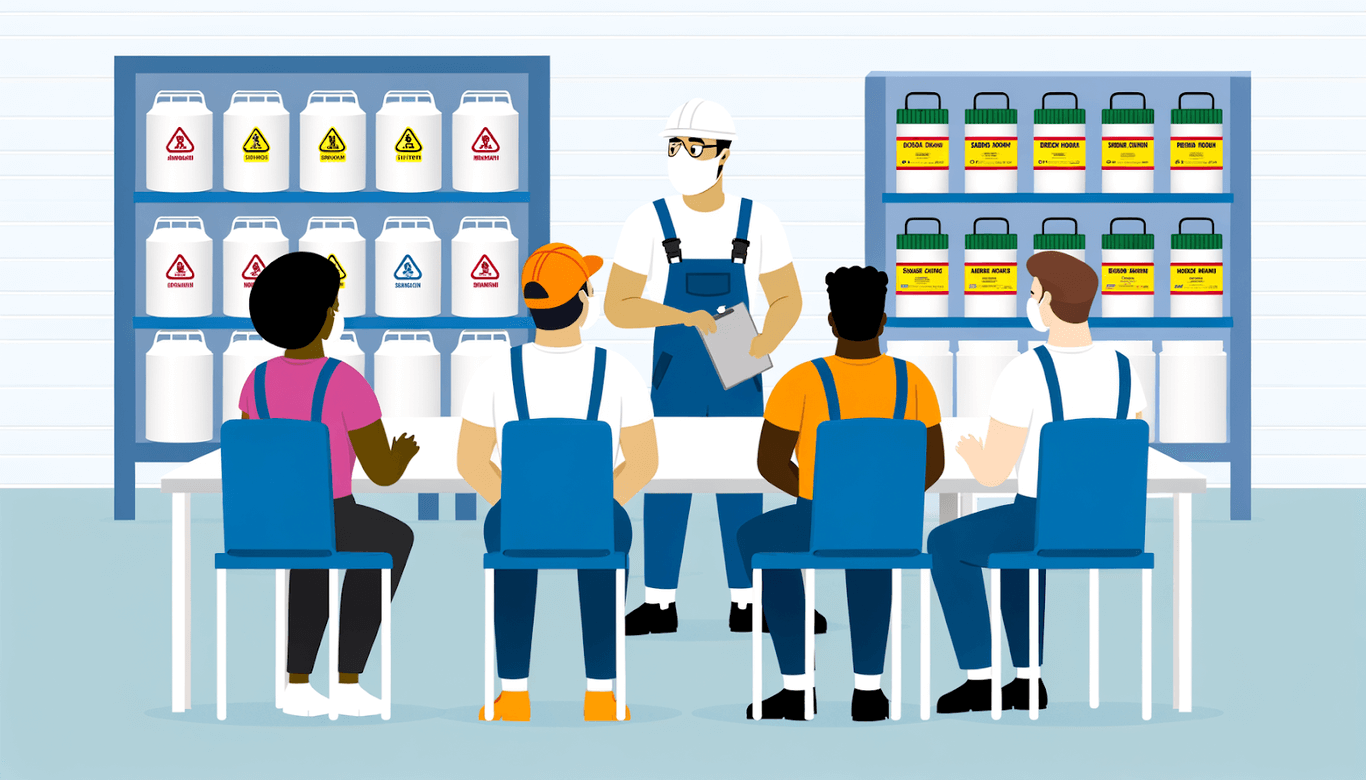
How to Train Employees on the Safe Use of Industrial Cleaning Chemicals
G'day! If you're in the industrial sector, you're likely well aware of the critical role that industrial cleaning chemicals play in keeping things spick and span. Whether you work in manufacturing, healthcare, or food processing, these cleaning solutions are indispensable. But let's face it — these chemicals can be a bit tricky to handle. That's why today, we’re going to delve into how you can effectively train your employees to use these cleaning products safely. Get your training manuals ready, mates!
Understanding Industrial Cleaning Chemicals
Types of Industrial Cleaning Chemicals
To begin with, it’s paramount to understand the different types of industrial cleaning chemicals and their specific purposes:
- Degreasers: These bad boys break down grease, oil, and stubborn residues on machinery and surfaces. A staple in factory settings.
- Disinfectants: Their job? Eliminate bacteria, viruses, and other nasties. Essential in places like hospitals and food plants where hygiene is crucial.
- Solvents: Ideal for cleaning paints and adhesives, solvents are your go-to in the automotive and aerospace industries.
- Acidic Cleaners: If you're battling mineral deposits or rust, acidic cleaners will be your weapon of choice.
- Alkaline Cleaners: These tackle heavy soiling and grease on machinery, making them invaluable for heavy industry.
- Sanitisers: Perfect for reducing microbial load, ensuring a safer environment.
- Descalers: Essential for removing scale from equipment like boilers and pipes, ensuring they run efficiently.
Applications of Industrial Cleaning Chemicals
Big industries have big cleaning challenges. Here’s how these chemicals find their use:
- Surface Cleaning: Regular and thorough surface cleaning is fundamental for maintaining workplace hygiene and safety.
- Machinery Maintenance: Degreasers and solvents keep machinery running smoothly by removing gunk that could cause mechanical issues.
- Water Treatment: Chelating agents improve detergent efficacy by dealing with hard water issues.
- Odor Control: Odor neutralisers improve air quality, especially in waste management environments.
Best Practices for Using Industrial Cleaning Chemicals
With such powerful chemicals at your disposal, it's crucial to employ best practices to ensure safe and effective use.
Correct Dilution
First and foremost, pay attention to dilution ratios. Too strong, and you risk damage or toxic fumes; too weak, and you might not clean effectively. Always stick to the manufacturer's recommendations.
Safety Data Sheets (SDS)
These are your safety bibles. Make sure SDS sheets are accessible and included in training. They provide essential info on hazards, first aid, and proper handling.
Personal Protective Equipment (PPE)
Your mates’ health and safety come first. PPE like masks and gloves are non-negotiable. Ensure they’re well-stocked and explain their importance to employees.
Proper Ventilation
Ventilation is key to preventing the accumulation of noxious fumes. Switch on fans and open windows when using these chemicals to protect respiratory health.
Labeling and Storage
Properly label all containers and don't mix different chemicals. Store them in well-ventilated areas, away from heat, and relabel if labels get damaged.
Training Employees
Training is the bedrock of safety. Include comprehensive sessions on using these chemicals, emphasizing the importance of SDS and PPE. Keep training up-to-date to reflect new practices or chemicals.
Disposal
Don’t just toss out chemicals. Follow SDS guidelines for disposal to avoid environmental hazards and ensure safety.
Common Mistakes to Avoid
Mixing Incompatible Materials
Mixing chemicals can be downright dangerous. Avoid it at all costs to prevent toxic reactions and fumes.
Ignoring Safety Protocols
Don’t brush off safety measures like wearing PPE or maintaining ventilation; they're vital for preventing serious health risks.
Improper Storage
Keep storage organised to avoid accidents. Ensure chemicals are in properly labelled containers and stored correctly.
Using the Wrong Chemical
Choose the right chemical for the job. Using the wrong one could lead to ineffective cleaning or even damage to surfaces.
Environmental and Health Considerations
Health Risks
Remember, these chemicals are potent. Improper use can lead to serious health issues like burns or respiratory problems. Use PPE diligently to minimise risks.
Environmental Impact
We all want to do our bit for the planet. Improper disposal can harm the environment, so always follow SDS disposal guidelines.
Wrapping It Up
Industrial cleaning chemicals are essential for maintaining hygiene and safety. But with great power comes great responsibility. By understanding these chemicals, following best practices, and ensuring employees are well-trained, you create a safer, more efficient workplace. So remember, keep your workers safe, adhere to environmental guidelines, and you'll reap the benefits of these powerful cleaning allies.
Ta for taking the time to read through. Feel free to reach out if you’ve got questions. Happy cleaning!
